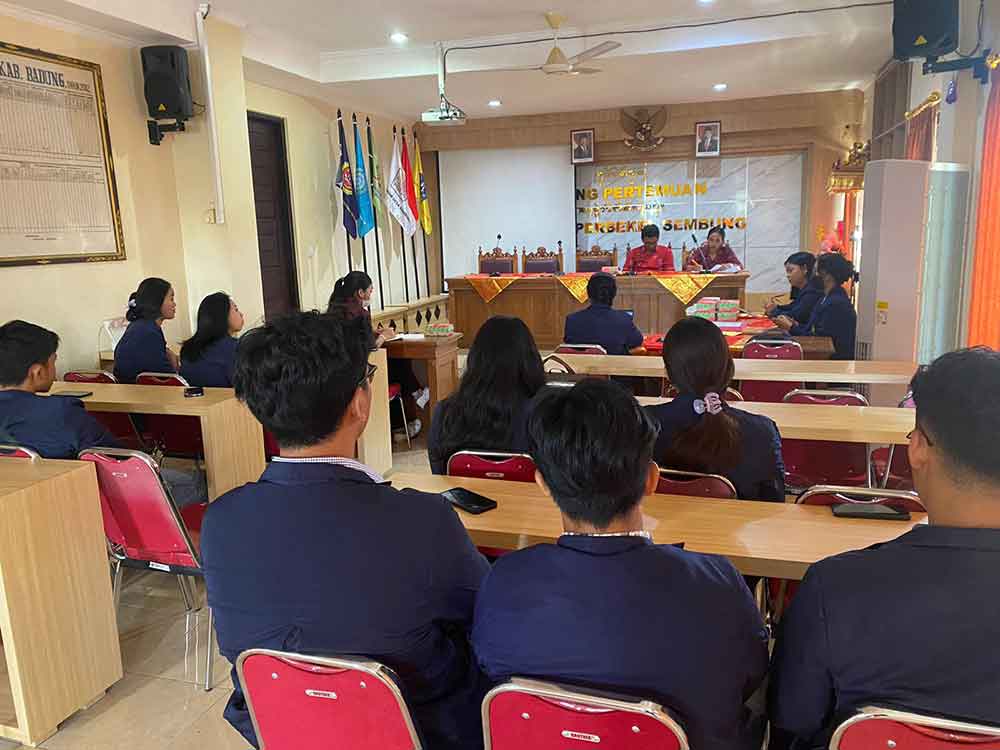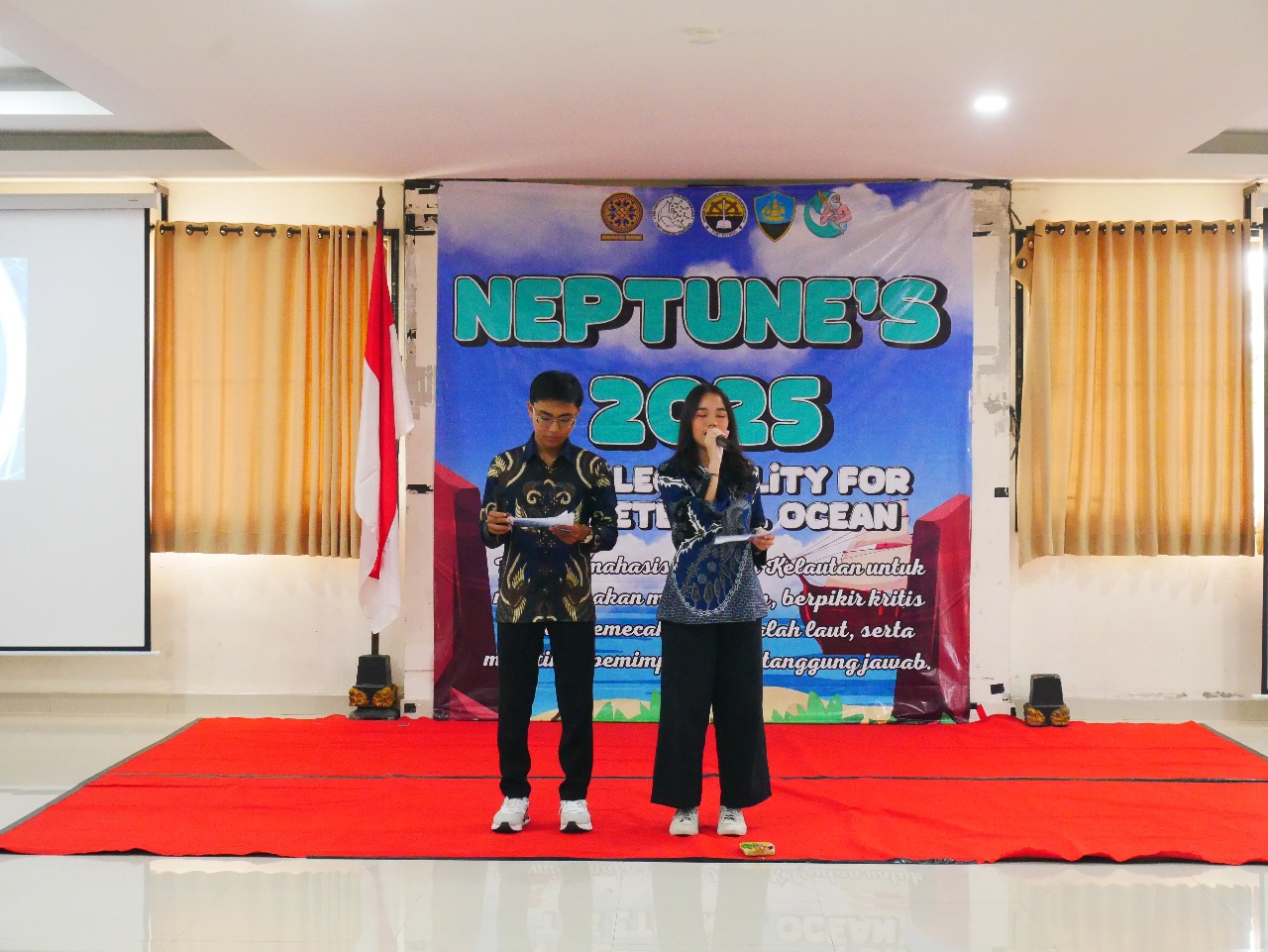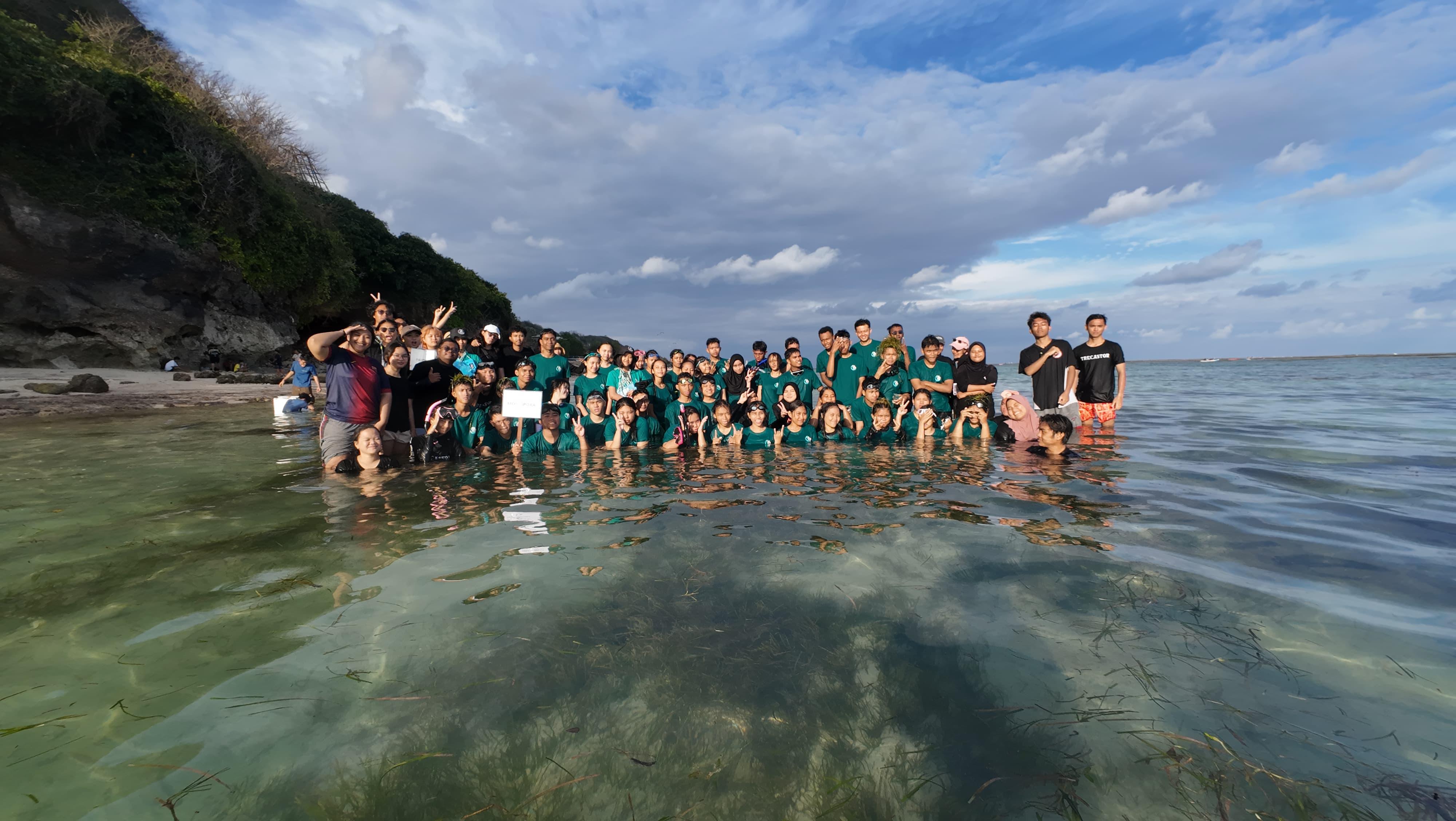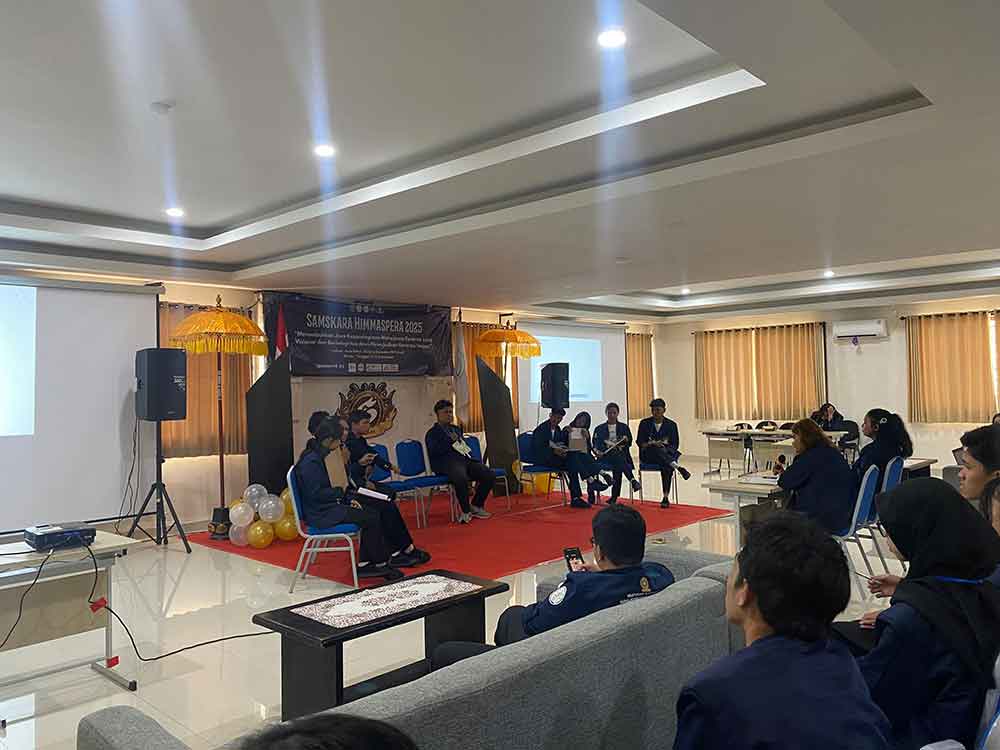Development of Cultivation Groups: Udayana University Conducts Monitoring and Evaluation of the 2024 Village Empowerment Program in Sembung Village
On Tuesday, December 3, 2024, Sembung Village became the focal point of the Monitoring and Evaluation (Monev) activities for the 2024 Village Empowerment Program, a strategic initiative by Udayana University aimed at improving community welfare through local empowerment. The event was attended by various stakeholders, including Ida Ayu Puspadewi representing MBKM Bina Desa of Udayana University, Ayu Putu Wiweka Krisna Dewi, S.ST.Pi., M.P., a lecturer from the Faculty of Marine and Fisheries of Udayana University, and the Secretary of Sembung Village, representing the local government. The event aimed to evaluate the program's implementation, discuss encountered challenges, and develop strategies for its sustainability in the future.
The event commenced with a detailed presentation by Komang Putri Marta Armayani, Chairperson of the 2024 Sembung Village Empowerment Program. In her presentation, Marta highlighted the program's success in implementing probiotics in catfish farming, which has positively impacted the productivity of cultivation groups. “Through this program, we have not only improved harvest yields but also revitalized the spirit of previously inactive cultivation groups to become more proactive and self-reliant,” Marta stated optimistically. She also outlined various supporting activities, such as training in water quality monitoring and rotating feeding schedules, designed to enhance community involvement and program sustainability.
During the Q&A session, Ayu Putu Wiweka Krisna Dewi raised questions about the challenges faced during program implementation. In response, Marta explained that the primary challenge was the weather during the rainy season, but the team had taken proactive measures to maintain the program's quality. “We continuously monitor field conditions intensively to ensure the program's quality is upheld,” she answered confidently. Ayu Putu Wiweka responded with practical advice, “It is crucial for group members to take turns monitoring water quality and feeding. This not only distributes responsibilities but also enhances the capacity and skills of each group member,” she remarked assertively.
The Secretary of Sembung Village also expressed deep appreciation for the established collaboration. “This partnership has had a profoundly positive impact, both socially and economically. We hope this synergy will continue to grow so that its benefits can be increasingly felt by the village community,” he stated. He also emphasized the importance of strengthening communication between the university and the village community to ensure program sustainability.
This event fostered a shared understanding of the importance of regular evaluations and active collaboration among all parties. The outcomes of this activity not only strengthened the community's trust in the Village Empowerment Program but also opened opportunities for similar initiatives in other villages. With a community-based approach and continuous academic support, the 2024 Sembung Village Empowerment Program is expected to become a model for effective and sustainable community empowerment innovations.




UDAYANA UNIVERSITY